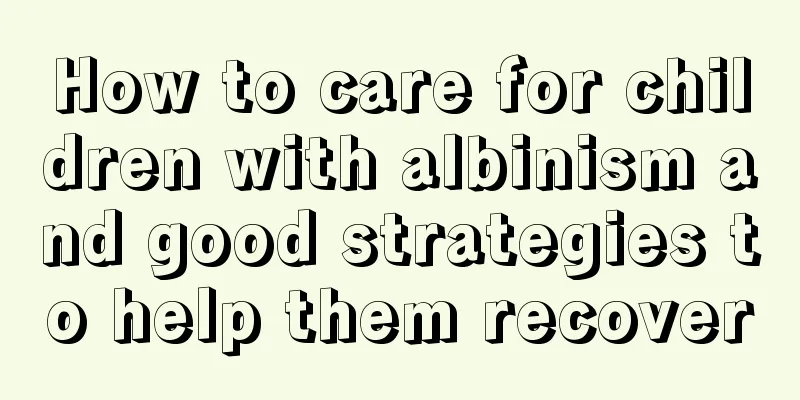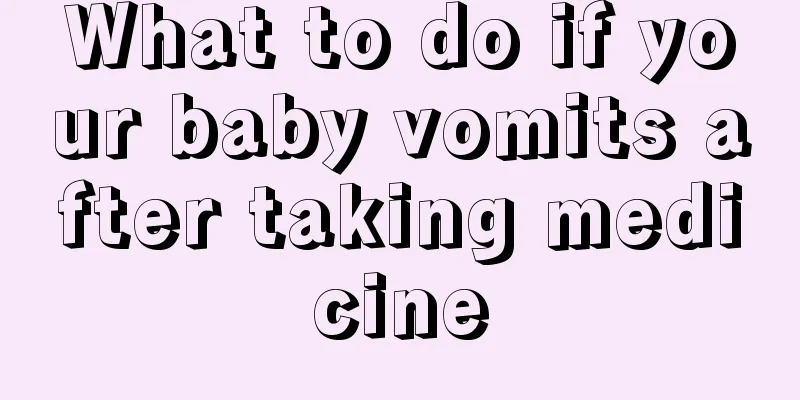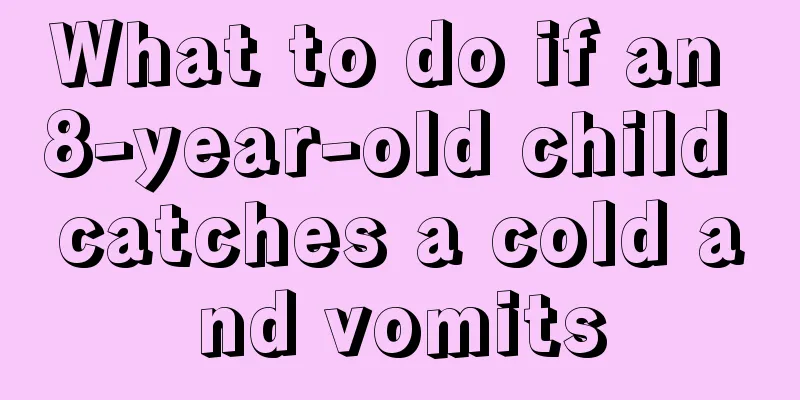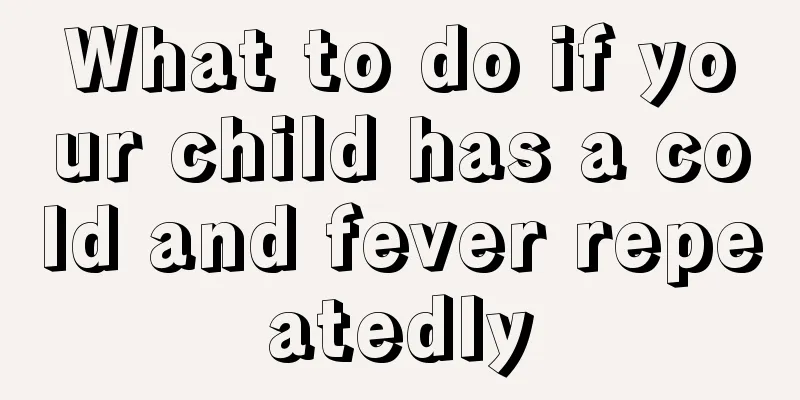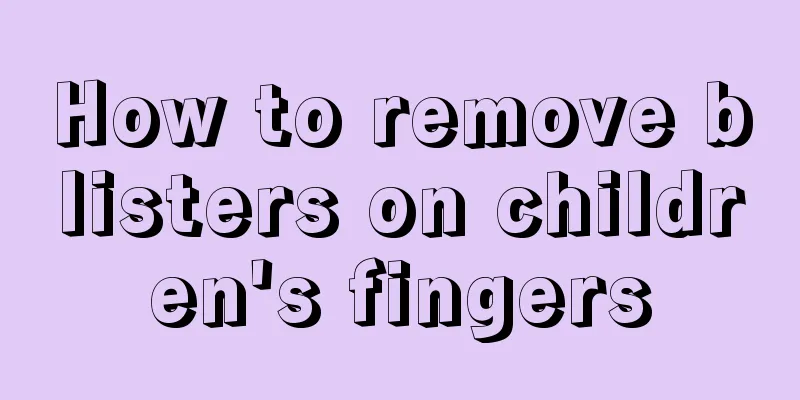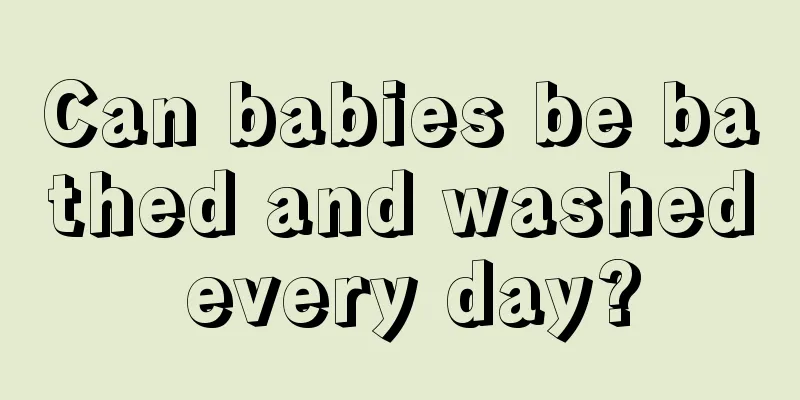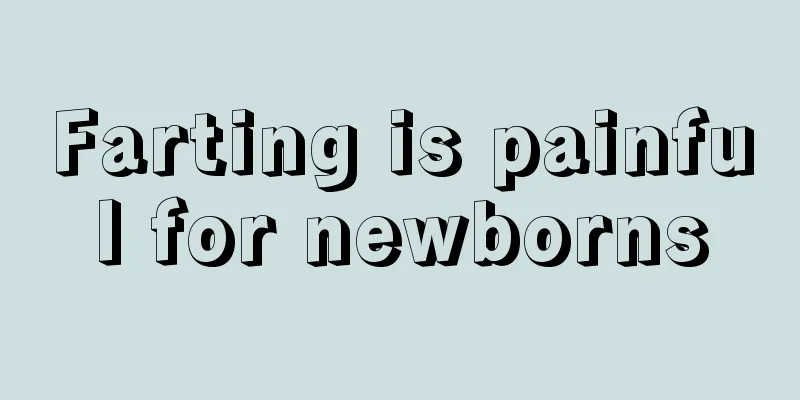What should I do if my child coughs after having a fever?
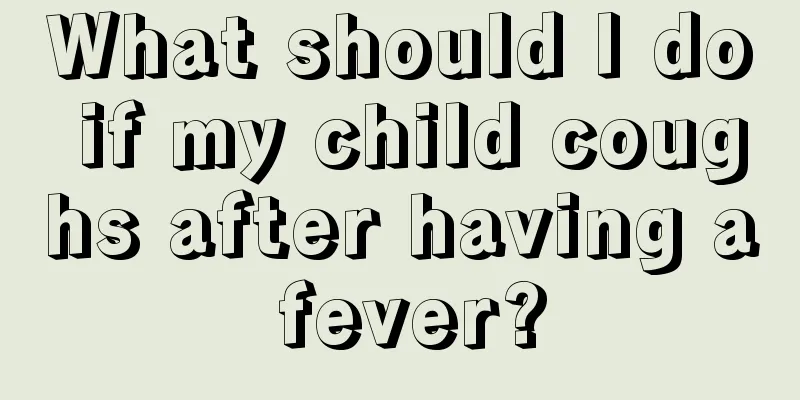
|
Children's bodies are relatively weak, and their resistance is usually poor, so they often catch colds accidentally. After catching a cold, they are very likely to have fever symptoms. These symptoms are also a headache for parents. It must be very distressing to see the baby catch a cold and have a fever. However, there are many ways to solve this problem now, such as many folk remedies in life, especially the following methods that parents must learn. What should I do if my child coughs after having a fever? Because children have poor ability to adapt to the external environment and their immune systems are not yet fully developed, any discomfort can easily lead to fever symptoms, or their body temperature may rise again quickly after taking medicine to reduce the fever. Especially in the hot summer, if parents use the air conditioner improperly or the baby drinks less water and cannot adapt to the high temperature weather, it will cause repeated fever. How to relieve recurrent fever and cough in children 1. Encourage children to drink more water and eat more fruits. After having a fever, the child's appetite decreases. You can prepare some delicious and easy-to-digest meals and choose the time when the child's temperature is not high or when he or she has taken medicine to reduce the fever to eat, but do not let the child eat too much. 2. Fever is the body's protective response against microbial invasion, which is beneficial to enhancing the body's resistance. Therefore, there is no need to take antipyretics if the body temperature is below 38.5℃. Antipyretic measures are only required if the body temperature exceeds 38.5℃. 3. Keep the environment quiet, comfortable and humid, ventilate the room regularly, and adults are not allowed to smoke. 4. Children with fever should not wear too many clothes, cover themselves with too thick quilts, or "cover up sweat" to avoid affecting heat dissipation and causing the body temperature to rise higher. 5. Keep bowel movements smooth. Parents are most worried about their children catching a cold or having a fever. If the child has repeated fevers and the high fever does not subside, parents must take the baby to the hospital for examination immediately and receive treatment under the guidance of a doctor. At the same time, babies with fever should choose lighter foods and pay more attention to hydrating their children. Baby fever care: If the baby's armpit temperature is above 37 degrees, it is abnormal. The mother can observe the child first, do physical cooling, and let him drink more water or juice. If the baby's temperature is very high, wipe the baby's body with a wet cloth, keep the room at around 29 degrees Celsius, ventilate, keep the air fresh, and pay attention to supplementing nutrition and water. If the temperature exceeds 38.5 degrees, you should give your baby antipyretics or see a doctor. Cold care: If your baby also has vomiting or high fever, you must take him to see a doctor. Do not let babies with colds go outdoors and avoid drafts indoors. Don't wear too much or too little. To maintain normal body temperature. Do not use nasal drops without a doctor's consent to avoid aggravating symptoms. Nasal congestion care: Babies around half a month old often have a stuffy nose. Usually this is neither a disease nor a cold. It is best to let your baby breathe fresh air outside and wait for natural improvement. Never use adult nasal drops on your baby. Cough care: If you cough while sleeping at night, it is best to raise your head or upper body slightly with a towel or pillow to prevent respiratory secretions from reflux into the trachea and causing coughing, which will affect sleep. This can also make the child feel more comfortable and relieve breathing difficulties. When you have a severe cough, you should not play too hard, otherwise it will aggravate the cough. Pay attention to keeping your body warm, especially the soles of your feet and the top of your head, so as to avoid reflexively reducing your respiratory resistance. However, do not let your child's body overheat, as clothes soaked with sweat are more likely to cause coughing. |
<<: What are the benefits of physical exercise for students?
>>: What are children's yoga moves?
Recommend
What to eat for a nine-month-old baby with anemia
When the baby is still young, mom and dad should ...
Five-year-old child sweats while sleeping
When children have night sweats, the first thing ...
What are the factors that affect children’s bone development?
The bones of newborn babies are not fully develop...
9 benefits of baby swimming to promote physical and mental development
1. Stimulate and promote brain nerve development,...
When should a child's circumcision be performed?
Many parents of children with foreskin that is to...
What are the nutritional recipes for children in one week?
Children's dietary health is what parents are...
What are the signs that your baby's diarrhea is getting better?
The baby's immunity is very low, and diarrhea...
How to effectively treat children’s teeth grinding when sleeping?
Many parents will find that their children grind ...
What to do if your child has red spots on his tongue
What should I do if my child has red spots on his...
What should I do if my baby has heat stroke and fever?
Since babies have relatively poor immunity, they ...
What should I do if my child has a fever and cough?
Fever and cough are very common diseases in peopl...
What to do if your child's arm is sprained
There is a high probability that a child's ar...
What to do if your child has a fever for no reason?
Every child will always encounter some health pro...
Newborn crawling training
When babies are five or six months old, their bod...
Is it hereditary for babies to have different eye sizes?
Some careful parents have discovered that their b...
